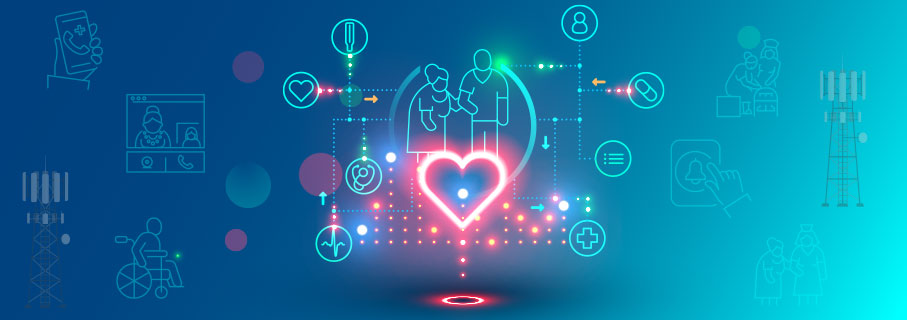Digital connectivity, particularly 5G, has the potential to transform technology applications across different sectors, boosting efficiency and productivity. In its latest report “Connected Care”, Mobile UK looks at the significant potential mobile connectivity offers to help councils and health care providers overcome the challenges of delivering adult social care as they face increasing social care demand and shrinking resources.

Significant advances are being made in digital technologies that are enabled by mobile connectivity. These advances enable adult social care to be delivered more cost effectively, without compromising on quality. One example is the range of new digital devices that will mean adults who have care and support needs can live independently for longer, alleviating the pressure on councils to provide residential care for their residents. Another example is remote care. A trial has found that remote monitoring to ensure that medication is taken appropriately can reduce hospital admissions by more than 50%.
Here are some examples of digital applications enabled by mobile connectivity within adult social care:
Remote consultation/diagnosis
High quality connectivity, such as 5G, enables medical professionals to interact with patients remotely, usually via video link, to undertake consultation and diagnosis which can involve high resolution photography, thermometer and otoscope (a tool for examining the condition of the ear canal and eardrum) readings. Health care providers will then benefit from quicker diagnosis and more productive staff.
Remote monitoring and data collection
Digital technology can support remote monitoring and collect a whole range of data in a variety of contexts to benefit those within the adult social care system. For instance, wearable sensor devices send out alerts when a health emergency occurs whilst analytics of data collected via remote monitoring provide more insight into patients’ drug uses and their response. Health care providers will then be able to target scarce resources among patients more effectively.
More secure, more accessible information
Collection of patient data, combined with patient and practitioner access to real-time and historical information, can support early intervention and proactive solutions, as opposed to reactive treatments. Health care providers will also benefit from better patient record keeping by having higher quality information that can be recorded and accessed more quickly, and therefore allowing more time to be spent on patient care.
Technology is already reshaping the way adult social care services can be and are being delivered, with the expectation of even more rapid advances just over the horizon. But the benefits of enhanced digital connectivity and applications to assist with the delivery of social care will only be materialised if the highest quality mobile connectivity is available. Supporting the investment in digital infrastructure and specifically mobile connectivity, will enable transformational changes to public services including adult social care. With these foundations in place, the potential of connected care can be realised.
